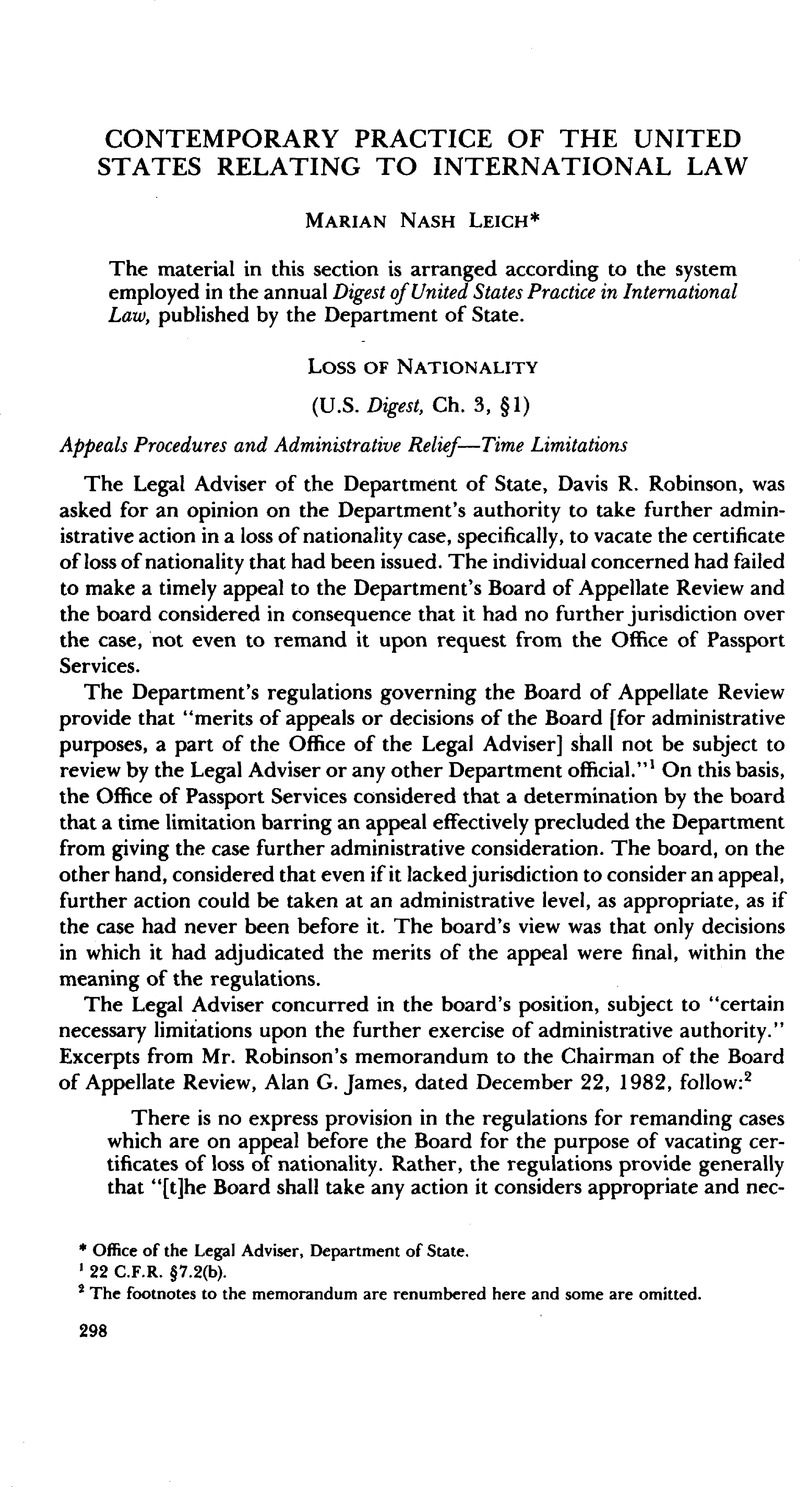No CrossRef data available.
Article contents
Contemporary Practice of the United States Relating to International Law
Published online by Cambridge University Press: 27 February 2017
Abstract

- Type
- Other
- Information
- Copyright
- Copyright © American Society of International Law 1983
References
1 22 C.F.R. §7.2(b).
2 The footnotes to the memorandum are renumbered here and some are omitted.
3 Restatement 2d, Judgments §19, Comment a.
4 Id., at §20.
5 Berman v. United States, 378 U.S. 530 (1964); 9 Moore’s Federal Practice §204.02[1].
6 2 Davis at 606.
7 8 FAM 225.13–225.16 (1970).
8 387 U.S. at 268.
9 Chicago, Indianapolis & Louisville Ry. v. Hackett, 228 U.S. 559, 566–67 (1913). See also Norton v. Shelby County, 118 U.S. 425 (1886), wherein the U.S. Supreme Court observed that: “An unconstitutional act is not a law; it confers no rights; it imposes no duties; it affords no protection; it creates no office; it is, in legal contemplation, as inoperative as though it had never been passed.” 118 U.S. at 442.
10 Attorney General’s Statement of Interpretation Concerning Expatriation of United States Citizens, 42 Op. Atty. Gen. 397 (Jan. 18, 1969).
11 42 Op. Atty. Gen. at 398–401.
12 444 U.S. at 260.
13 Dept. of State File Nos. P83 0013–0749, 0013–0750.


